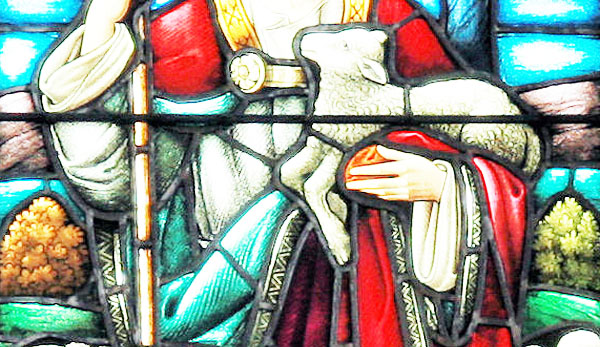Why are you cast down, O my soul, and why are you in turmoil within me? Hope in God; for I shall again praise him, my salvation (Psalm 42:5). Notice that this call to worship comes from David, to David. It is David confronting his own doubting, discouraged heart with the truth of who God is.
Psalms
Psalm 25 and the New Year
The old British divine Matthew Henry refers to the practice of praying God’s Word back to God as “wrestling with God in his own strength.” For this reason, I love to peruse the Bible for prayers to make my own. And one of my favorite passages to pray is Psalm 25. As we look forward to a new year, I don’t know what changes, purposes, or opportunities await each of us, but I am confident that “good and upright is the LORD” and that, “therefore he instructs sinners in the way. He leads the humble in what is right, and
Thanksgiving Is Prayer & Proclamation
Make a joyful noise to the Lord, all the earth! Serve the Lord with gladness! Come into his presence with singing! Know that the Lord, he is God! It is he who made us, and we are his; we are his people, and the sheep of his pasture. Enter his gates with thanksgiving, and his courts with praise! Give thanks to him; bless his name!
What It Means To Walk With God
O Lord, you have searched me and known me! (Psalm 139:1) Notice two things from this brief statement. First, it recognizes the fact that God knows us, is intimately acquainted with us. Second, it is a prayer. It is a prayer from the psalmist, talking to God, and recognizing God’s ever-presence with him. This is the essence of walking with God.
God Gets the Glory For Your Achievements
You cause the grass to grow for the livestock and plants for man to cultivate, that he may bring forth food from the earth and wine to gladden the heart of man, oil to make his face shine and bread to strengthen man’s heart (Psalm 104:14-15). The psalmist is worshiping God for all his creative acts and wonders. And among the things God gets credit for, according to Scripture, is the results of human labor!
Magnify Him With Thanksgiving
I will praise the name of God with a song; I will magnify him with thanksgiving (Psalm 69:30). At first glance, the psalmist’s declaration may seem strange. How does one “magnify” the omniscient, omnipresent, almighty God who holds the universe in his hand? In other words, how can anyone make an everywhere-present God bigger?
Green Pastures In Painful Times
He makes me lie down in green pastures. He leads me beside still waters. (Psalm 23:2) While it is true that we all have experienced what we might call “a good day” — when the children are behaving, the sun is shining, our body is healthy, our spouse is agreeable — these blessings from our benevolent God are not unique to believers who have Christ as their shepherd. Even unbelievers can enjoy these things.
You Are With Me
The psalmist famously writes: “Even though I walk through the valley of the shadow of death, I will fear no evil, for you are with me; your rod and your staff, they comfort me” (Psalm 23:4). Francis Schaeffer, in his book The God Who Is There, references a tragic poem found with the body of a 23-year old young woman and drug addict who had committed suicide. The note read:
I Shall Not Want
The LORD is my shepherd; I shall not want (Psalm 23:1). In less than ten words the psalmist David expresses the great confidence and sweet security of every believer: first, that Yahweh alone is Lord; second, that he guides and provides for those who put their trust in him; and, finally, that those who are thus cared for shall not want for any good thing.
What Is Biblical “Thanksgiving”?
Sing to the LORD with thanksgiving; make melody to our God on the lyre! (Psalm 147:7). In this season of Thanksgiving, it is helpful to consider what “thanksgiving” specifically is, in biblical terms. And in this verse we see at least three crucial elements to godly gratitude. First, thanksgiving above all involves communication with God.









